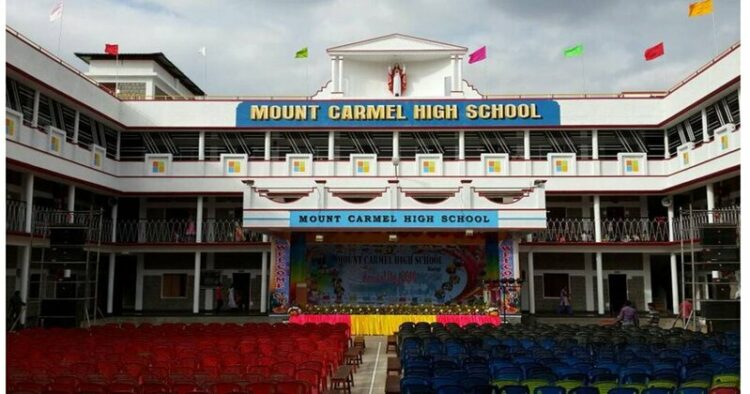Students of Mount Carmel High School located in Kurnool district of Andhra Pradesh have accused the school management of harassing them for applying tilak/bindi on their foreheads and girls for wearing bangles.
Reportedly, the management has termed applying tilaks on forehead by boys and wearing of bangles and bindi by girls as an ‘offence’. Those sporting a tilk/bindi or wearing bangles are being fined heavily, students say.
A report by a monthly magazine named ‘Hindu Nagara’ has stated that 36 students of the school have applied for Transfer Certificates (TC) as they were being harassed by the school management.
The school management has also been accused of forcing Christian beliefs on non-Christian children by making them mandatorily undergo Bible reading classes and Christian religious prayers during morning, evening and lunch hours. The walls of all classrooms of the said school are also painted with the image of Jesus Christ, the students say.
The school management has also been found to frequently invite foreigners to the school and making them interact with minor students. These foreigners are reportedly missionaries working for evangelical charity organizations.
Many students have reportedly stopped attending the school as they were unable to bear the harassment. However, they haven’t been able to join another school as Mount Carmel School is demanding exorbitant money from the parents for issuing TC.
Preliminary investigations by NGO watchdog Legal Rights Protection Forum (LRPF) has revealed that there are no Minority Educational Institutions existing in Kurnool district. According to LRPF, the school is falsely claiming to have ‘Minority Institution’ status as the RTI mentions that there are no Christian minority institutions in the district.
“It is clearly appearing that the Mount Carmel School is also violating the article 25 and 28(3) of the Indian Constitution and various provisions of the Right to Education Act, Juvenile Justice Act, and the Foreign Contribution Regulation Act.”, the LRPF has noted in its complaint to the National Commission for Protection of Child Rights (NCPCR).




















Comments